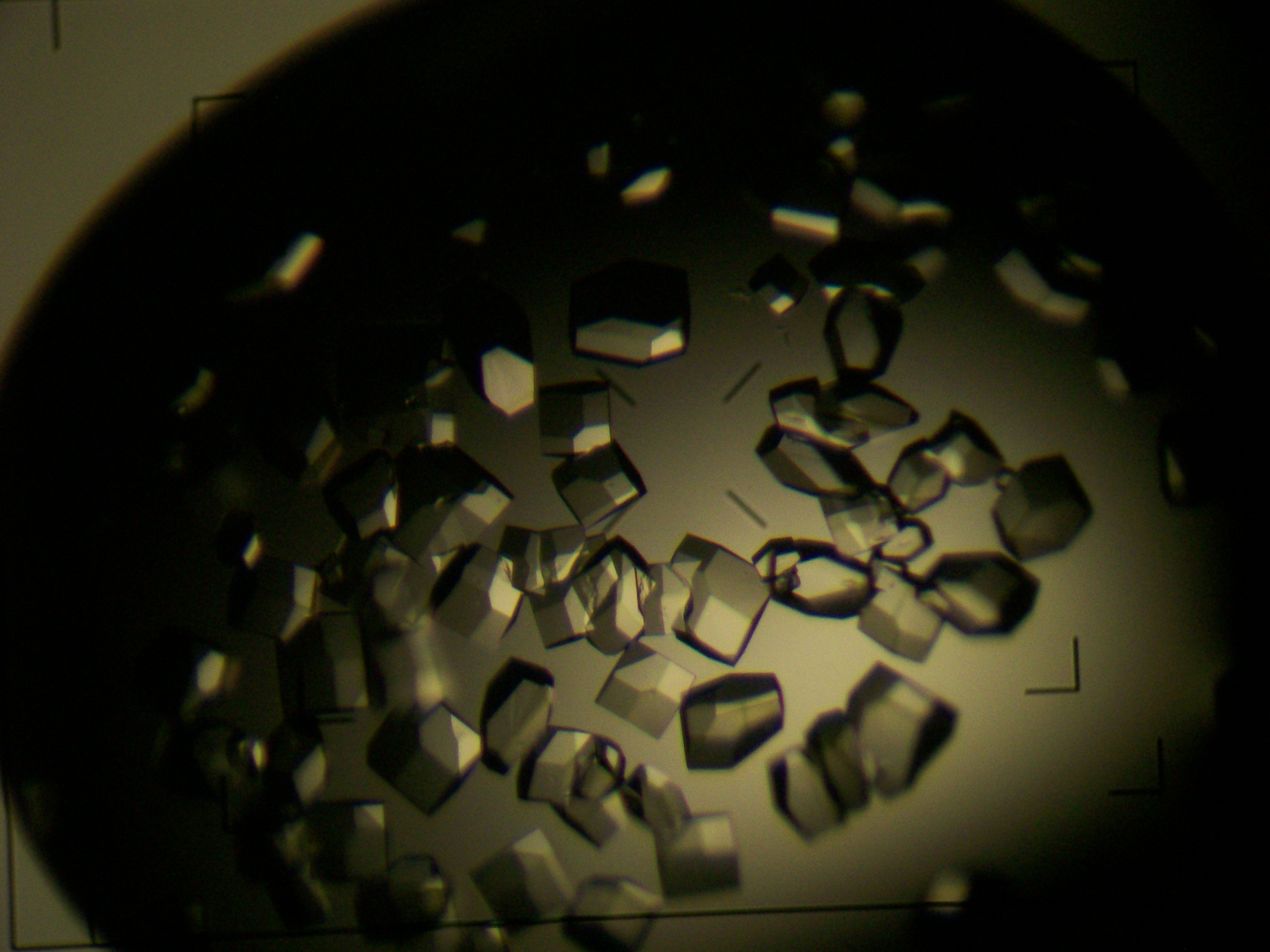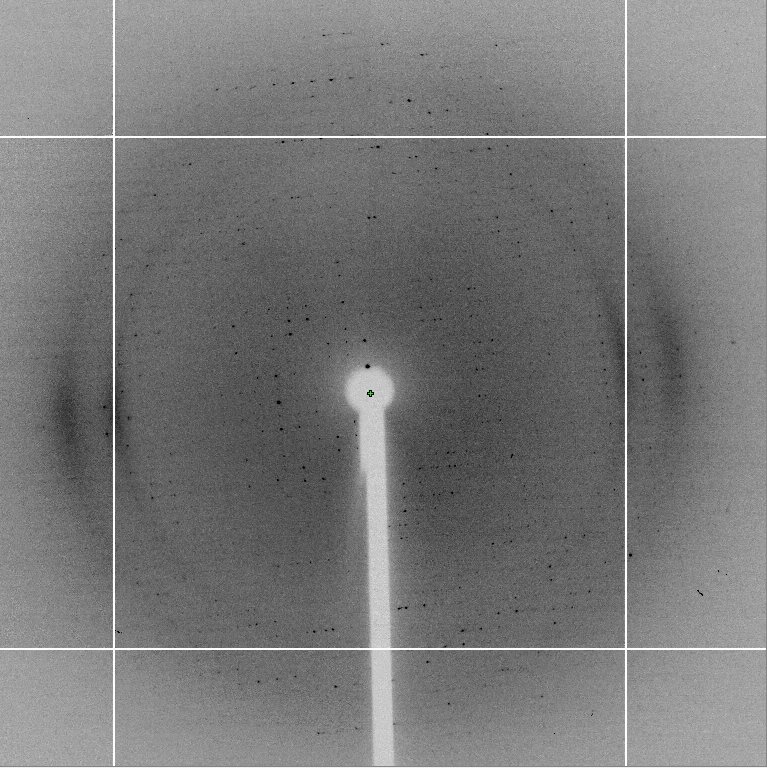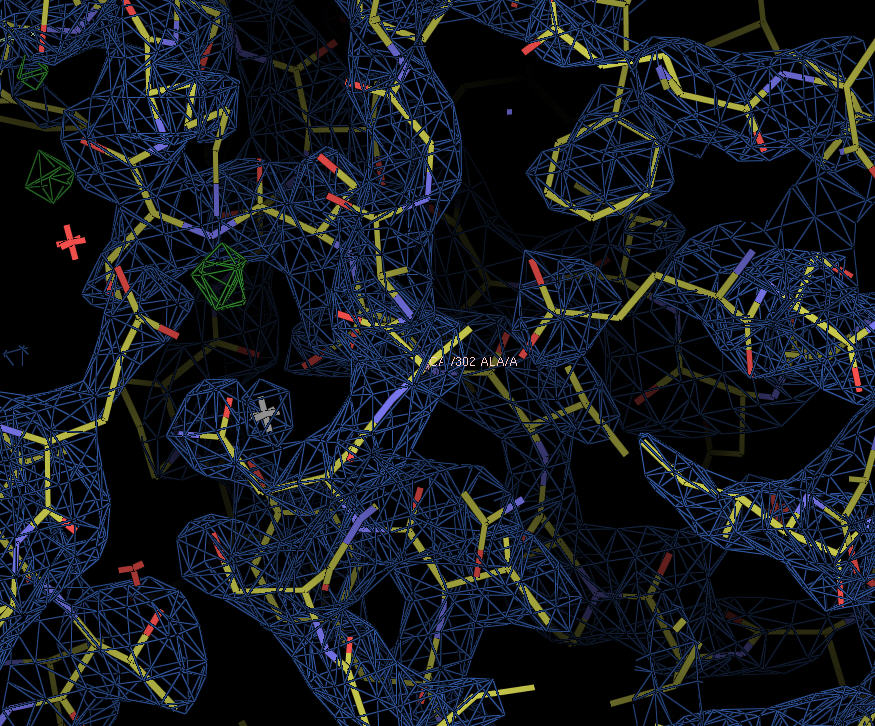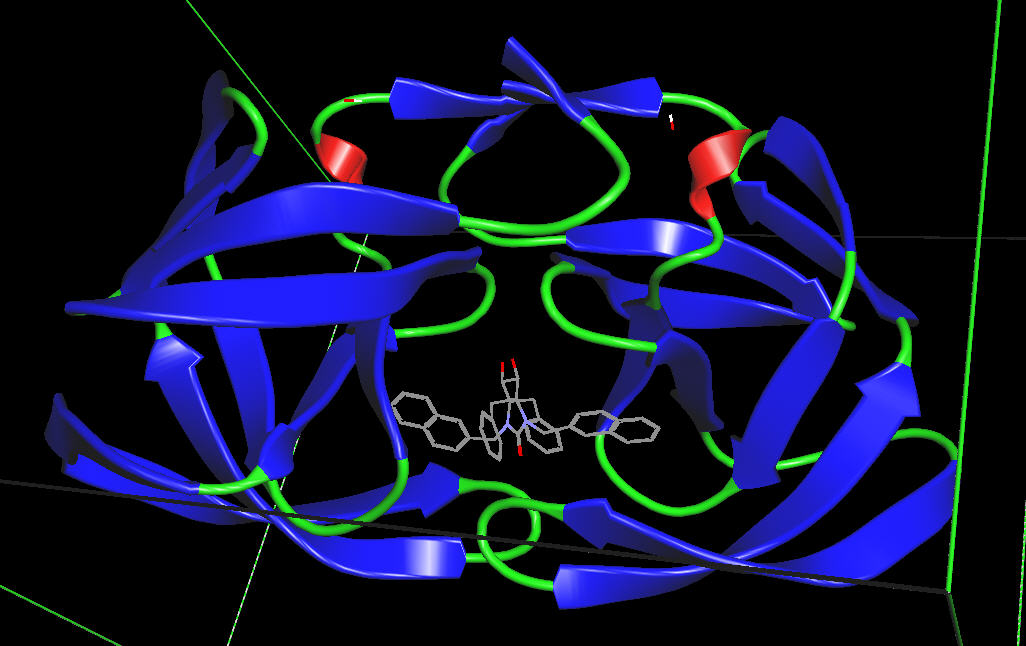|
CHEM528: Protein Structure and Function
   
Course Specifics:
Instructor: Dr. Jason C. Hurlbert
Office: Sims 301B
Office hours: MWF 11-12 and by appointment
Phone: 323-4928
E-mail: hurlbertj@winthrop.edu
Meeting Times:
MWF: 10:00 – 10:50
Textbook: Protein Structure and Function by Gregory A Petsko and Dagmar Ringe, New Science Press
Additional Requirements: In addition to the text for the course, students will be required to bring a laptop computer to class. You will find links to the software required in the course in the 'Useful Programs' link on menu bar to the left. You must install the required software found there prior to the second meeting of the class (January 12).
Course Outline:
We will cover the following topics during the semester:
- Computational Methods for analysis of Protein Structure and Function
- Common Protein Structural Folds and Enzyme Classes
- Regulation of Protein Activities
- Methods of Protein Structure Determination
- The Active Site Structure and Reaction Mechanisms of the 6 base Enzyme Classes
During the semester, I hope you will gain an appreciation of the important role structural biology plays in a variety of scientific endeavors. Upon completion of the course, you will be familiar with many of the basic principles of modern structural biology, protein chemistry and protein bioinformatics. You will also have a much better idea of the databases and software available for use in your own research.
Tentative Course Schedule
Note: Topics in BOLD are hands-on workshops where you will use your computers for the duration of class. You must have the required software installed and tested BEFORE class begins.
| Date |
Topic |
| 9 January |
Course Introduction |
| 11 January |
Overview of Protein Structure and Function |
| 13 January |
Tools 1: Entrez |
| 16 January |
No Class - Martin Luther King, Jr. Holiday |
| 18 January |
Sequence Alignments: BLAST and Clustal |
| 20 January |
Tools 2: Jalview |
| 23 January |
Amino acids and Basics of Protein Structure |
| 25 January |
Introduction to Protein Folding |
| 27 January |
Structural Domains |
| 30 January |
Tools 3: Introduction to the PDB |
| 1 February |
Tools 4: UCSF Chimera |
| 3 February |
Structural Basis of Protein Function |
| 6 February |
|
| 8 February |
Mechansims of Protein Regulation |
| 10 February |
|
| 13 February |
Review |
| 15 February |
Student Presentations |
| 17 February |
Test 1 |
| 20 February |
Review of Course Progress to Date |
| 22 February |
Small Molecule Docking |
| 24 February |
Tools 5: Autodock Vina1 |
| 27 February |
Tools 5: Autodock Vina 2 |
| 29 February |
Protein Evolution 1 |
| 2 March |
Protein Evolution 2 |
| 5 March |
Spectrophotometry: CD and Fluorescent Methods |
| 7 March |
Calorimetric Methods: ITC and DSC |
| 9 March |
Protein Interaction Analysis: SPR and Biacore |
| 12 March |
Spring Break |
| 14 March |
| 16 March |
| 20 March |
Applications of NMR to Protein Structure Determination |
| 22 March |
Protein Crystallization 1 |
| 24 March |
Protein Crystallization 2 |
| 27 March |
X-ray Diffraction Analysis of Protein Crystals |
| 29 March |
Phasing of Crystallographic Data |
| 2 April |
Enzymes: Oxidoreductases |
| 4 April |
Enzymes: Transferases |
| 6 April |
Enzymes: Hydrolases |
| 9 April |
Enzymes: Lyases |
| 11 April |
Enzymes: Isomerases |
| 11 April |
Enzymes: Ligases |
| 13 April |
Test 2 |
| 16 April |
Final Presentations |
| 18 April |
| 20 April |
| 23 April |
Course Evaluations |
Grading for the Course
Homework
Homework questions are found on the course website and are due on the dates given on the course schedule. These questions must be answered and emailed to the instructor before the course meets on the due date. Please feel free to work in groups on these problems. However, be certain that you understand how these problems are solved as you may be required to present the solutions to the class during lecture.
Working Notebook
Much of the work in this course will be done on a computer and will involve pulling data from various websites, examining files, editing them and then using the edited files in various other software programs. This can be confusing to anyone, let alone to individuals who are just beginning their studies in modern structural biology. To alleviate any such confusion, you will be issued a laboratory notebook on the first day of class. You will use this notebook to record your activities in studying your assigned proteins. I will collect this notebook at the end of the semester and grade it based on the following criteria: thoroughness, attention to detail and organization. I will explain the use of this notebook on the first day of class. This notebook will be indispensible during the semester, so use it well!
Student Presentations
Each student will be assigned a representative member of the 6 enzyme classes at the start of the semester. These proteins will serve as a focal point for you to apply the techniques and methodologies covered. Students will give two presentations on their assigned proteins during the semester. The first presentation will consist of basic information about all of the assigned proteins (physical properties, host organism, reaction catalyzed, etc.). The second presentation will consist of a detailed analysis of four of the assigned proteins. This second presentation must include structural data, mechanistic data AND explanations of key experiments in the literature that allowed the elucidation of the information. The first presentation should be 20 minutes in length and the second presentation should be 33 to 37 minutes long.
Exams
Two fifty-minute exams will be given during the semester. These exams will be open computer. You are being tested on how you retrieve information in addition to your knowledge of the material learned. The exams are meant to keep you on track and prevent you from falling behind.
Final Exam
The final exam for the course will consist of a 20 minute oral question session that will cover any of the material discussed in the course. Your grade on this oral final exam will be determined by your ability to recall information and explain it in a coherent, rational manner. The final exam is cumulative and is meant to provide an opportunity for you to show mastery of the material covered during the semester.
Grade Summary
3 Homework Sets (Entrez, BLAST, Chimera) @ 10 points each: 30 points
2 Exams @ 50 points each: 100 points
Course Notebook: 50 points
First Presentation: 20 points
Second Presentation: 50 points
Final Exam: 25 points Oral + 75 points Written
Total: 350 points
Grades
A: 90-100% of maximum possible points
B+: 87-89% of maximum possible points
B: 80-86% of maximum possible points
C+: 77-79% of maximum possible points
C: 70-76% of maximum possible points
D: 60-69% of maximum possible points
F: 59% of maximum possible points
Additional Requirements for Graduate Credit
Because of the advanced nature of the course and the level of rigor that it presents, this course may be taken for graduate credit. Students receiving graduate credit (both non-degree seeking and those working toward a degree) will be required to develop a 10-12 page scientific review of the six proteins assigned to them. This proposal must cite at least 12 primary literature sources. The review paper must use each of the databases and software programs learned in the class during the semester. For each protein, color figures detailing the overall protein structure and the active site must be created for each protein.
Additional Requirements for Honors Credit
This course may be taken as an Honors class (CHEM524H) after consultation with the instructor. Students opting to take the course as CHEM524H will be required to perform additional computational and laboratory research on selected proteins. Details will be worked out on a per-student basis in order to better tailor the requirements to their academic goals.
Technology in the Classroom
Out of respect for everyone in the room, please turn your cellular telephones to ‘Silent’ and (if applicable) mute your laptop computers. Also, your laptop computers may only be used for the tasks assigned during the class period, not updating your Facebook page, email, etc. Students failing to adhere to these rules may be asked to leave should their behavior prove disruptive to the class.
Students with Disabilities
Winthrop University is dedicated to providing access to education. If you have a disability and require specific accommodations to complete this course, contact the Office of Disability Services (ODS) at 803-323-3290. Once you have your official notice of accommodations from the Office of Disability Services, please inform me as early as possible in the semester.
|

